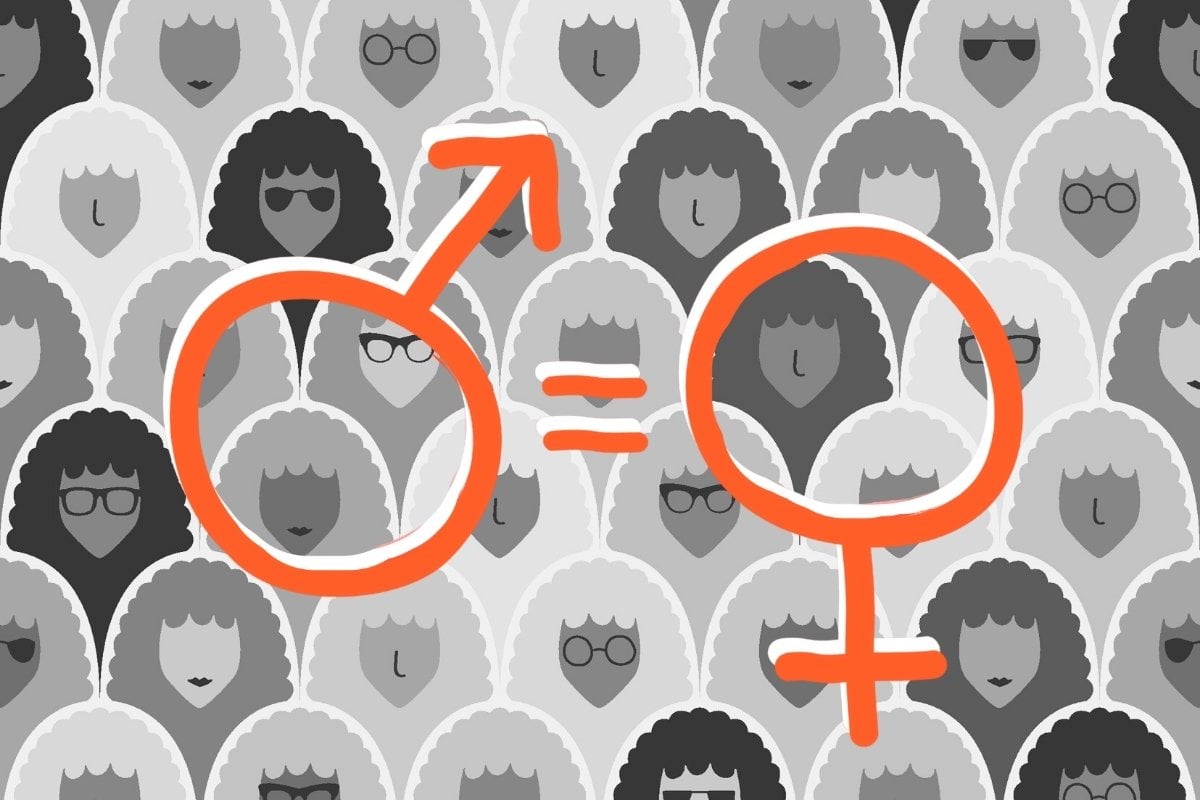
Ever found yourself tangled up in a disagreement over a hot-button issue, struggling to get your point across? Mamamia’s How To Have A Conversation series takes topical subjects and guides you through how to engage, simply and effectively, so that you can have a more productive conversation. And who knows, maybe even open some eyes...
In recent years, we've witnessed significant gains for women. The global groundswell of support for movements like Time's Up and MeToo. The loud calls for better representation for the spectrum of women in entertainment, boardrooms and politics. The millions marching in the streets calling for reforms to help end inequality.
Yet there's still a significant swathe of people who are reluctant to identify with the 'F' word.
Watch: Unsure if you're a feminist?
For some, the concept conjures decades-old associations of a bra-burning, rage-filled protest movement; a kind of shouty, public activism they simply aren't willing to align with.




























































































